Advertisement
Two Afghan families start anew in a Newburyport church basement
Resume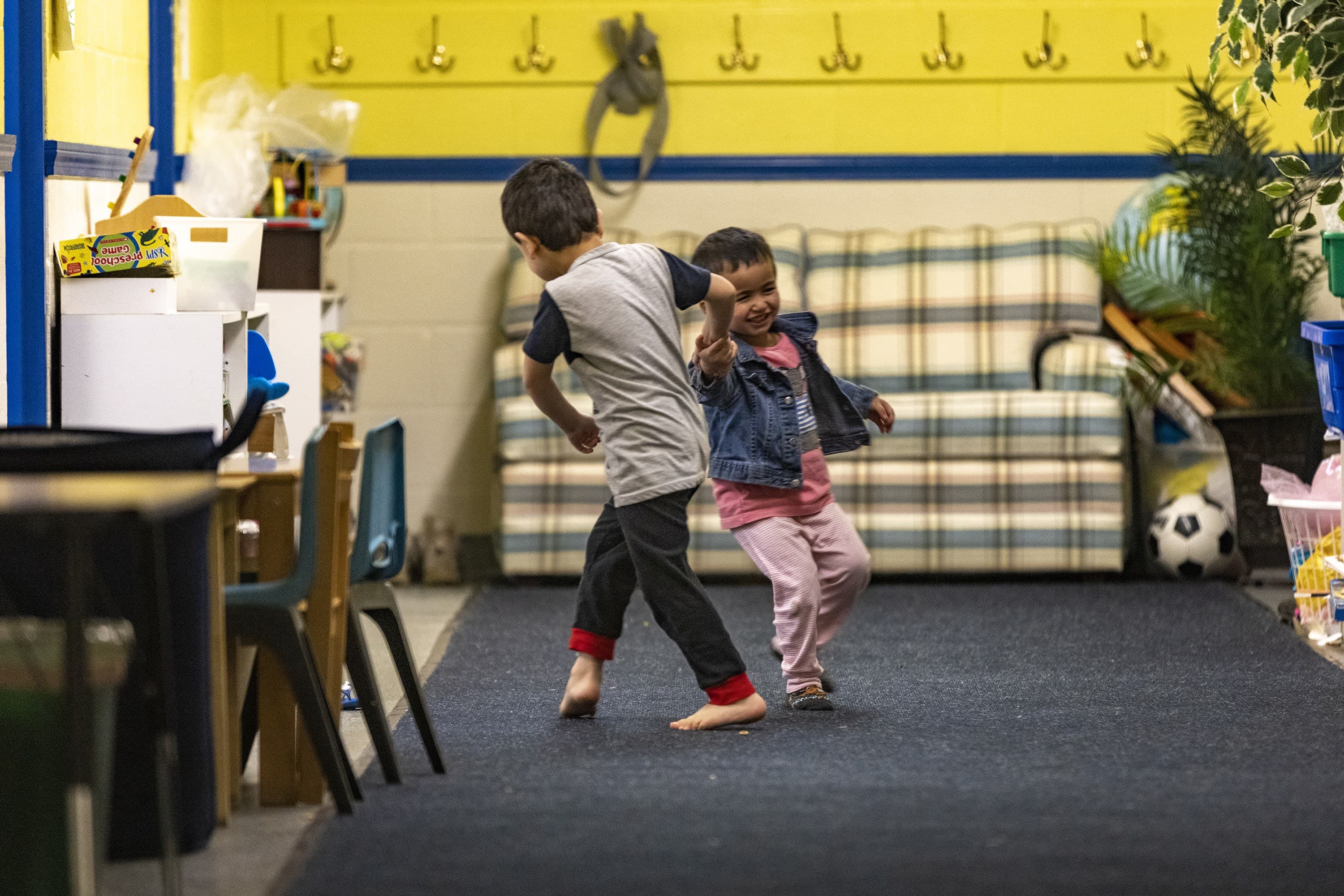
The cinder block cellar of an old Episcopal church in Newburyport is alive these days with the sounds of children playing, teens chatting and families coming together over meals. They're full of excitement and hope.
The basement had been the site of religious education classes and church gatherings. Now, two large families from Afghanistan — two sets of parents and 15 kids in all — call it home. They arrived in Newburyport in mid-December and early January after some time on U.S. military bases. They escaped their homeland during the American evacuation and Taliban takeover in late August and are among the 2,000 evacuees resettling in Massachusetts.
Both fathers worked for the Afghan government — one in the military, serving alongside U.S. troops. That made them direct targets of the Taliban.
Their kids range in age from toddlers to teens. In mid-afternoon, the adolescents come back from school — they attend public schools in Newburyport — and clomp down the steps to the basement.
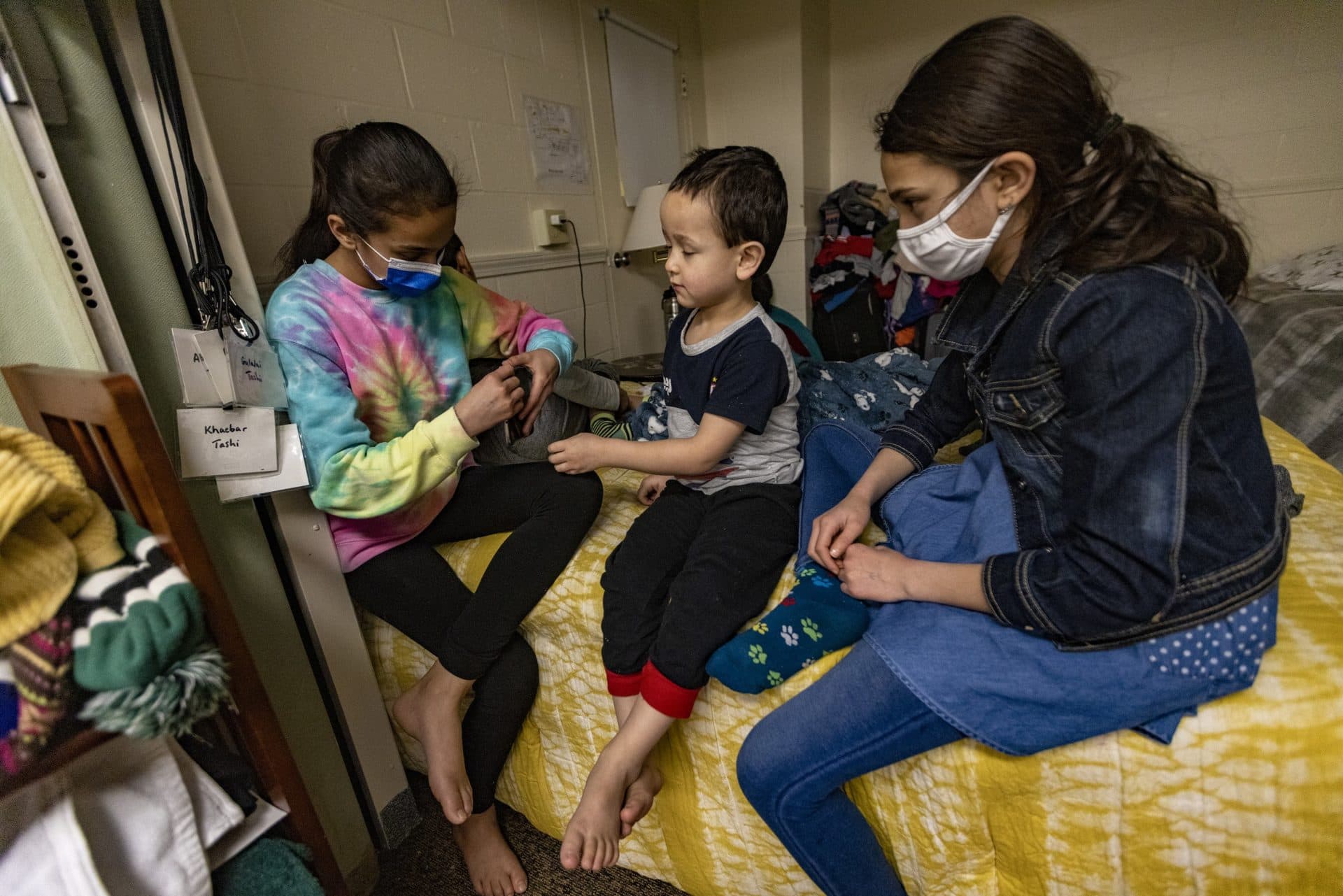
Malija, 12, says school is her favorite experience in the United States so far, and the best part of that is getting to "speak English."
Members of the family gather in one of the large spaces that's been converted into a bedroom. There are several twin beds, bookcases and suitcases with clothes piled on top. The long, wide hallway outside is painted lemon yellow — made even brighter by the fluorescent lights.
It's easy to forget there's an active church above until sounds of the organ echo down from the sanctuary during an afternoon practice session. The Afghan guests are Muslim, and people in the community helped them feel at home here by donating prayer rugs and Qurans.
At the other end of the hall is a living room with couches and coffee tables. And around the corner, a makeshift dining room. It has a glass-doored fridge like the kind found in a convenience store. It's well-stocked with vegetables, yogurt, eggs, halal meat, and some cupcakes.
One of the fathers, 42-year-old Sami, takes a seat at the table to talk about his new life here. He's wearing a baseball cap, sweatpants and flip-flops.
"I'm grateful from all Americans because I have been receiving all assistance," Sami says through an interpreter named Abdul, an Afghan evacuee who used to do interpreting work for the U.S. military and recently resettled in a different Massachusetts town. "I will never forget their assistance, their support and their help."
Sami is his middle name. He says the Taliban has gone to his brother's house in Afghanistan a few times asking where is. He worries about his family's safety there. But for now he has to focus on getting his footing here. His dreams for life in America are modest.
"I didn't have car in Afghanistan. My house was not a professional, a very nice house," he says. "Our economic situation was not well. The salary I was getting back in Afghanistan, I was just affording my family because I have big family, and I had to support my parents, as well."
His family in Afghanistan still needs help from him.
"Yeah, my family is expecting me more to support them financially, because there's no work [there] these days," he explains. "So I have been receiving calls from my brothers, from my parents, from my sisters. And they have been telling me, 'You are in the United States of America. And you have to work hard to find money for me.' "
He acknowledges that's a lot of pressure. He doesn't have a job yet.
"I don't know how much money I will earn here, whether I will be able to support my family from here or not," he says.
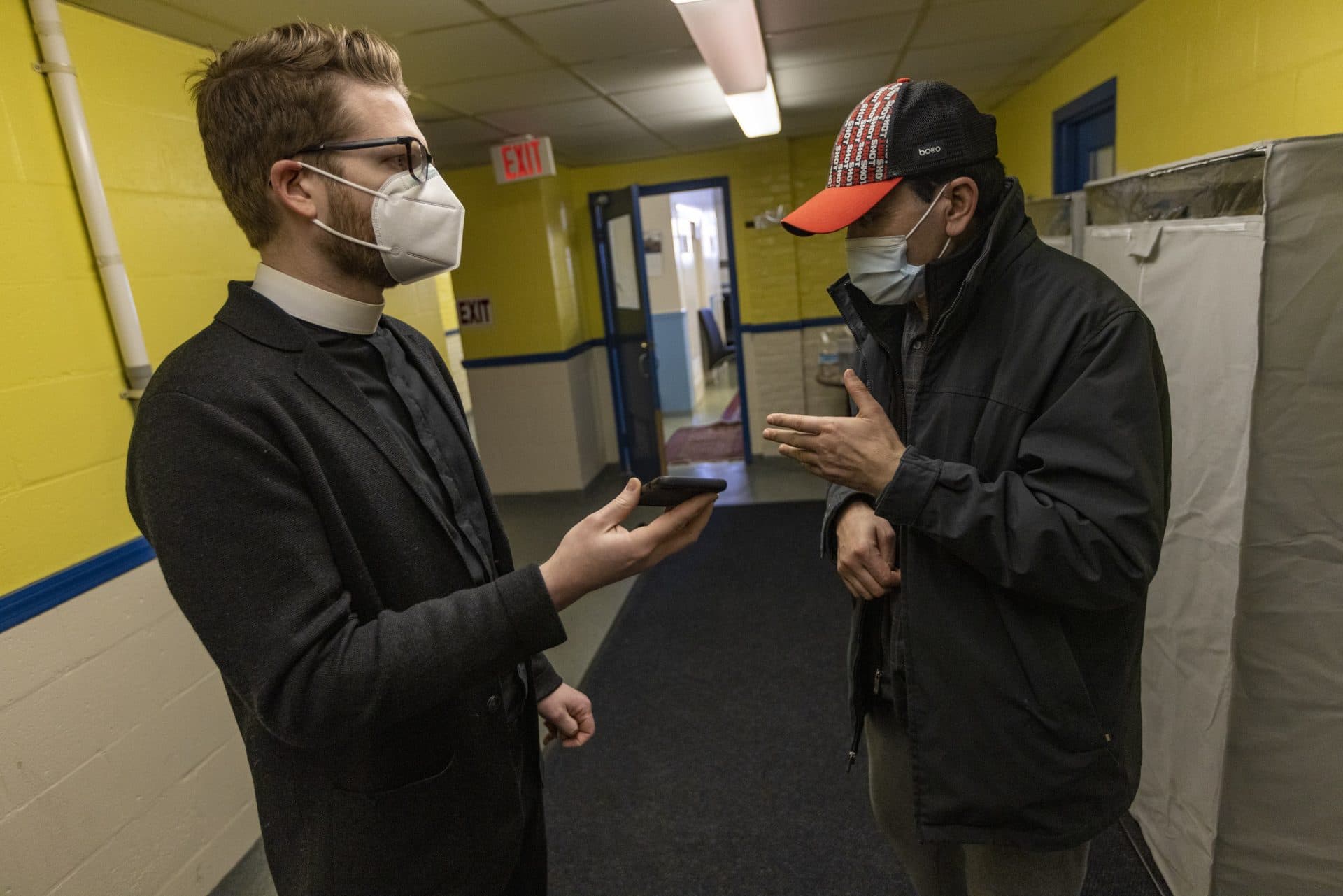
Down the hall, one of Sami's sons shows off his English by counting his family's beds, ending at "10."
That's a lot of mouths to feed.
The priest at St. Paul's, Rev. Jarred Mercer, says he hopes support from him and the community helps the families feel at ease despite the pressures they face.
"They've been through an unbearable amount of trauma and [have had] their whole lives uprooted," Mercer says. "I think the most important thing that we've wanted to get across to them is that ... we're very happy that they're here. We want them to thrive and flourish and, you know, we want to support and love them however we can."
That includes showing them some fun. On a recent day, Mercer took the families sledding, along with his own children.
He originally offered the St. Paul's basement to the resettlement agency International Institute of New England to temporarily house Afghan evacuees, but has ended up doing more than just providing housing.
When the church got word it would receive at least one family around the holidays, it put out a call for donations.
"And within a day and a half, we were turning things away because we received too many beds, too much bedding, too many clothing items — which is remarkable to see," Mercer recalls.
People have also given money; he says that's what the families need most.
International Institute of New England continues to help the Afghan arrivals, but it's stretched thin. It's helping 400 Afghan evacuees resettle in Massachusetts with just 15 direct case managers, according to its president.
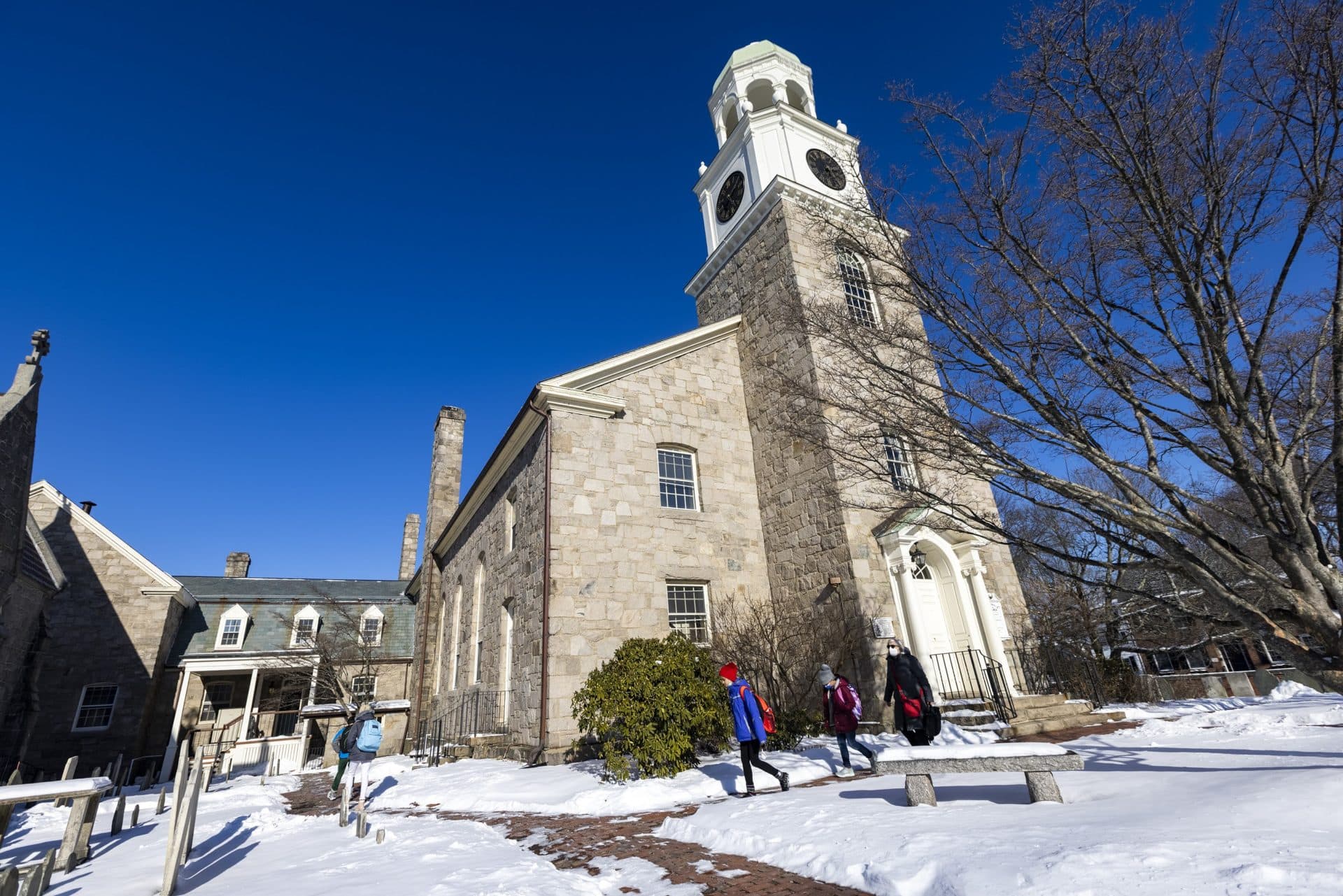
So Mercer manages the daily needs of the guests living at his church. He's also organized a working group of local volunteers, including teachers, doctors, social workers and housing experts. They provide services to the new arrivals for free. And they're looking for affordable, creative options for permanent housing for the families.
"But it's become more and more clear, and we've become more and more committed, to the idea of of long-term support so that they can come to this point of self-sufficiency," Mercer says. "And for families of this size, that's going to take some time."
The volunteers are helping other Afghan evacuees locally, as well. In Newburyport alone, there are 40 Afghan citizens who fled their country following the Taliban takeover — the 19 living at St. Paul's and three families supported by other local churches, according to Mercer.
Each Afghan evacuee receives a one-time payment of $1,225 from the federal government. In Massachusetts, the state is giving each of them $2,250 in financial assistance. International Institute of New England says it's targeting the state funds to housing for the families and individuals for 12 months, as they work to become self-sufficient. They also have access to public benefits including food assistance and medical coverage.
The U.S. brought many Afghans — including the two families living at St. Paul's — here on humanitarian grounds, but their status is in limbo. They have protected status for two years, but do not yet have a direct path to permanent residency. Eventually, they will need to apply for asylum, obtain a Special Immigrant Visa, or apply for a green card through a family or employer petition.
The support has allowed the young Afghans, including 17-year-old Afzal, to do what young people are supposed to do — dream big.
"My hope and my dream is to just study hard and become doctor, engineer or teacher and to go back to Afghanistan and serve my own people there, as well," Afzal says through the interpreter. "So if peace comes back and everything goes well, of course I'll go back to Afghanistan. But after I get my dream."
Sami's oldest child, 19-year-old Benafsha, is equally determined.
"With all of the opportunities available right here, I want to [do] all my studies, and then I want to become a doctor," she says in Dari, as translated by Abdul. "It's going to be proud for me to be a doctor in the future and just to serve people."
Benafsha's mother says her eight children's lives would be much different if they had remained in Afghanistan — especially the girls'.
"If we were there, our daughters would not be able to go to school," she says. "I'm really proud [of] my kids that they have been learning English and everything. So when I'm watching my kids go to school, I feel happy."
And the kids seem happy. They say the schools in Newburyport are far better than what they had in Afghanistan.
They also get to take English classes taught by volunteers at the church five days a week. Teenagers and grown-ups learn in one room, younger kids in another one.
After a few word exercises, the young ones jump to their feet to practice their English with a classic American children's tune.
"Head, shoulders, knees and toes; knees and toes," they sing, along with their teacher. Then they break out in applause and cheers.
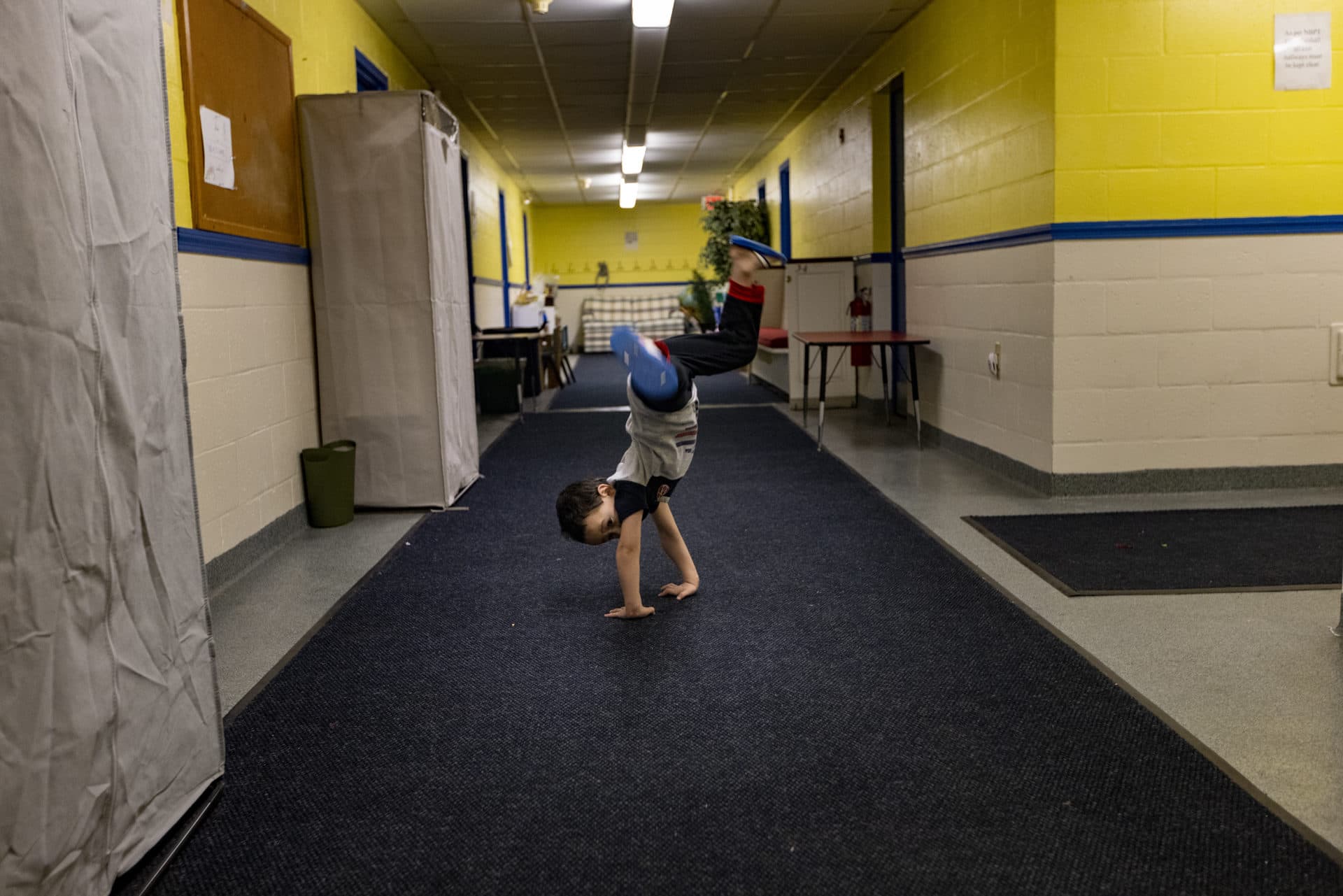
This segment aired on February 16, 2022.

